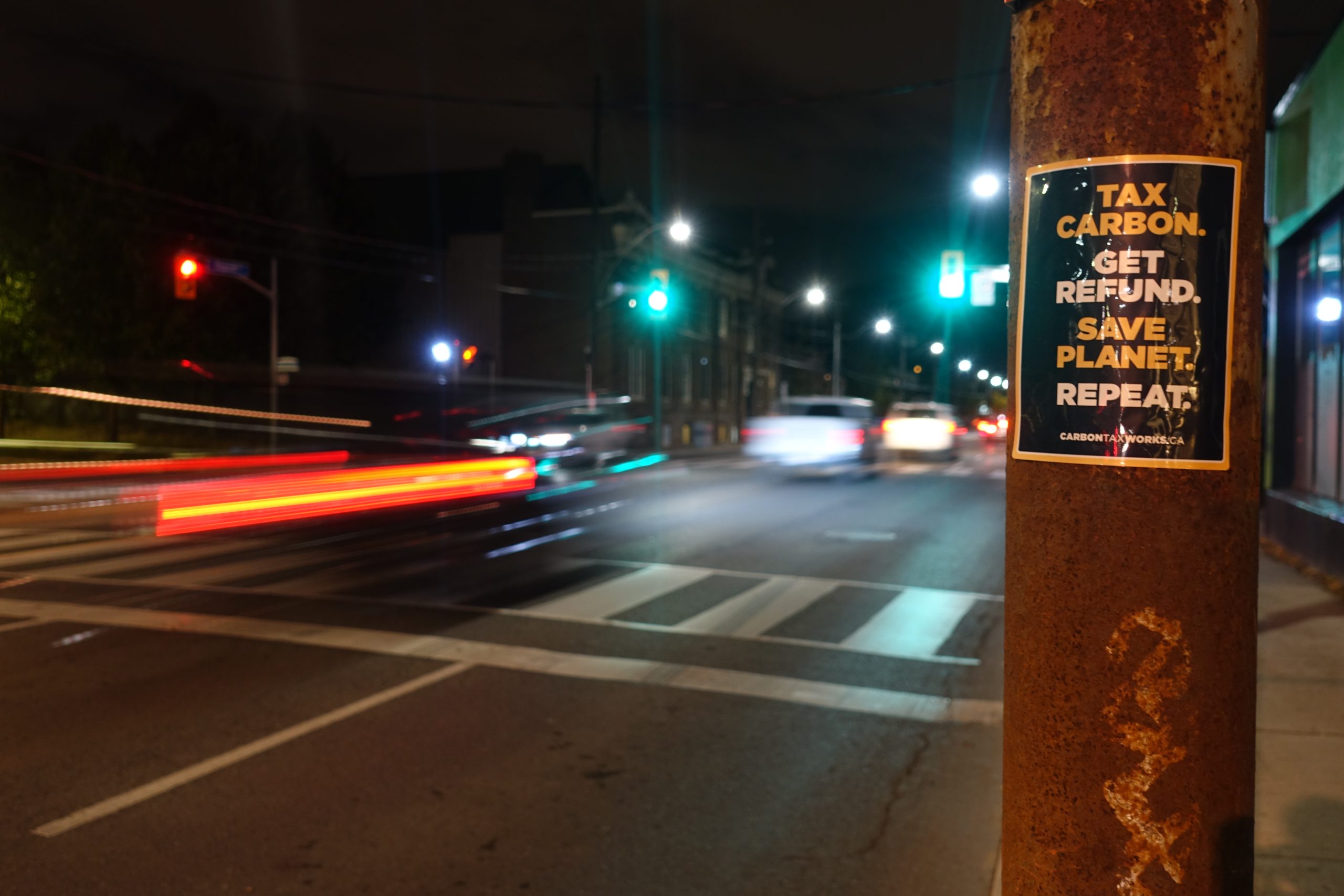Here’s what UVic students have to say about it

Photo by Richard Anderson via Flickr.
B.C.’s consumer carbon tax (CCT) has been front and centre as an election issue over the past month, as B.C. nears a provincial election on Oct. 19.
Discussion around the CCT ramped up in September after federal NDP leader Jagmeet Singh announced that his party no longer supported carbon pricing that affects individual Canadians.
This federal pivot led BC NDP leader, Premier David Eby — who has long supported the CCT — to announce that he too would be in favor of ditching it if federal rules changed.
BC Conservative Leader John Rustad maintains his party’s long held opposition to the CCT, and plans to eliminate the tax if his party forms government after the election.
As of now, the BC Greens are the only major provincial party that continues to support the province’s CCT. In a recent press release, BC Greens Leader Sonia Furstenau announced that the party will also propose increasing the carbon rebate cheque for low- and middle-income individuals and families, which was introduced alongside the CCT.
The Martlet took to the campus grounds to ask UVic students and staff what they think of the consumer carbon tax, and the climate action tax credit, which low- and middle-income individuals and families receive quarterly to help offset the impact of the carbon taxes they pay.
Derek, fourth-year geography and environmental studies student
“I’m generally in favor of [the consumer carbon tax]. I just wish that we invested [the tax revenue] more in infrastructure, so people had more options — like better transit, car shares, things like that.”
“I don’t know the details, I just know that I get more back [in my tax credit] than I pay in [the consumer carbon] tax … From what I understand, you have to … buy a lot of fuel to not get a bigger rebate back.”
Alaya, second-year recreation and health education student
“I think it is a little bit interesting how the average student or working class individual is expected by government to pay for something that is … being produced is from the one per cent richest population — the billionaires and millionaires and politicians of the world who are doing a lot of private flight travel and who don’t spend their money in the most sustainable ways.”
“I have always grown-up thinking about [my carbon footprint]…. When it comes to energy and sustainability, I’m aware that the carbon emission percentage in our world is constantly climbing, so I’m trying to do my best to make small impacts of sustainability in my life in any way.”
“I don’t know a lot about [the climate action tax credit] … because there is such a barrier of transparency between government and the general population … but if the Green Party wanted to keep this [CCT] and tell [us] everything the money is going towards, I’d be more inclined to be okay with it, because I know where it’s going.”
Kate, UVic student
“I wonder about the long-term effects of the carbon tax. Food’s getting pretty expensive, and I wonder if the carbon tax is causing that. You know, it affects different levels of the food chain. So, I’m not a big fan.”
“I don’t [know about the climate action tax credit]…. Trying to find good information about it is kind of a pain.”
Kelty, UVic Student
“I don’t think that the carbon tax should be placed on consumers. I think the carbon tax should be placed on big corporations because that’s who’s actually doing the pollution.”
“I’d be happy to get rid of it, but I’d also be happy to place a higher carbon tax on corporations.”
Stewart Lusk, Team Lead at UVic Satellite Design and Centre for Aerospace Research
“I think it’s essential to have a price on carbon…. If we pollute our air, we’re going to get sick, if not, make everything sick. So there has to be a price on carbon.”
“I would love to say — from my utopian side — that, yes, I’m a better person because I’m aware of the carbon tax. But I think the carbon tax needs to be designed for the big harm and the big predator [corporate polluters].”
“For me, [the climate action tax credit] is all smoke and mirrors. There’s a cost to pollution, and we need to pay that cost, [but] to take it out of one hand and then distribute it through another is a political game.”
Andrew, psychology student
“I don’t know much about [the CCT], honestly, but I know … my parents don’t like it, that’s for sure…. Hot take: I don’t like the price of gas.”
“I drive here from Sidney, and that affects me.”
“I’d love to learn more about [the climate action tax credit] as the election comes up. I still need to do more research. I’m more focused on the Chiefs game on Sunday than the elections . . . and I think that’s a problem . . . I’m 20 years old [and] not big into politics, but I think that there needs to be a way that it’s more accessible to learn more about these things.”







